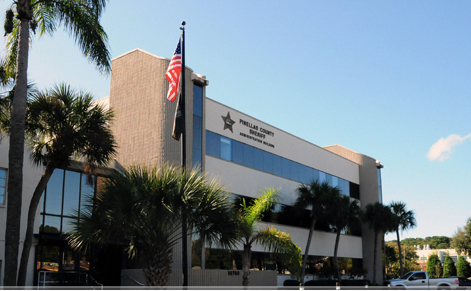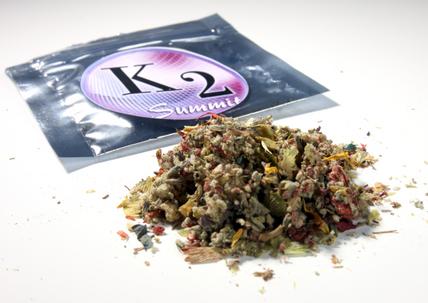Tampa Bay Criminal Attorney and Former State Prosecutor Melinda Morris of the Morris Law Firm discusses the proposed Senate Bill 212 and its potential effect on juvenile sentences.
Issue:
Florida Senate Bill 212 seeks to give juveniles who committed non-homicidal crimes the opportunity for parole or re-sentencing after 15 years. Inmates would only be eligible if they met certain criteria such as the level of risk the offender imposes on society; the wishes of the victim; the level of the offender’s participation in the offense; the offender’s sense of remorse; the offender’s age at the time of the offense; and their behavior while incarcerated.

Why This Matters To You:
Senate Bill 212 is a potential improvement to the sentencing laws that affect those that commit crimes as juveniles in Florida. Although the proposed law would only affect approximately 110 inmates, it indicates that Florida lawmakers are giving additional consideration to juveniles who commit serious crimes and may be rehabilitated by the criminal justice system.
Very long sentences for a juvenile may be viewed as the equivalent of a life sentence. The proposed Senate Bill gives some hope to juveniles convicted in the State of Florida.
What To Do Next:
If your child has been charged with a juvenile crime in Tampa, contact a St. Petersburg Juveniles Crimes Lawyer to discuss possible defenses and specific strategies that may exist in the case. Call the Morris Law Firm at 727-388-4736 to discuss you case directly with an attorney, or fill out our Online Form to be contacted for a Free Initial Consultation. The Morris Law Firm can help. Attorney Melinda Morris has specific knowledge and experience in representing juvenile offenders throughout Pinellas County the entire Tampa Bay, FL area (St. Petersburg, Clearwater, Tampa, Hillsborough, Pasco, Manatee, Sarasota and Bradenton).
Tampa Bay Criminal Attorney and Former State Prosecutor Melinda Morris of the Morris Law Firm discusses how the Pinellas County Sheriff’s Narcotics Unit arrests could be called into question.
Issue:
Late in 2011 the Pinellas County Sheriff’s Office conducted a sting to apprehend alleged marijuana growers. In this instance, the Pinellas County Sheriff’s Office Narcotics Unit utilized questionable tactics: secretly videotaping customers of a Largo based hydroponic gardening shop, illegally entering citizen’s property, and using questionable means to obtain search warrants. Now Sheriff Bob Gualtieri has gone on record stating that his own officers’ tactics had an, “air of deceit,” that they used, “shortcuts,” and that the entire unit was “too loose.”

Why This Matters To You:
Sheriff Bob Gualtieri has publicly stated that the Narcotic Unit’s methods were questionable at best. In fact, the Sheriff asked the State Attorney’s Office to drop the charges against the alleged marijuana growers that were targeted in the hydroponics store sting. Further, certain officers may face criminal charges for their actions.
This issue highlights a potential far reaching consequence of the officers’ questionable behavior: If an officer provides sworn testimony in a criminal drug case in Pinellas County and elements of that testimony are called into question, it could very well call into question all aspects of the officers’ statements and the case itself.
Additionally, this issue touches not only the marijuana growing cases, but any case touched by the Pinellas County Sheriff’s Narcotics Unit. As Sheriff Gualtieri has stated the activities of his officers raise, “serious questions about their veracity across the board.”
What To Do Next:
If you have been charged with a drug related offense throughout Tampa and the surrounding areas, contact a St. Petersburg Criminal Defense Lawyer to discuss possible defenses and specific strategies that may exist in your case. Call the Morris Law Firm at 727-388-4736 to discuss you case directly with an attorney, or fill out our Online Form to be contacted for a free initial consultation. The Morris Law Firm can help. Attorney Melinda Morris has specific knowledge and experience in representing alleged drug and marijuana offenders throughout Pinellas County the entire Tampa Bay, FL area, including St. Petersburg, Clearwater, Tampa, Hillsborough, Pasco, Manatee, Sarasota, Largo, Dunedin and Bradenton.
Tampa Bay Criminal Attorney and Former State Prosecutor Melinda Morris of the Morris Law Firm discusses how the Florida House Bill signed into law that governs synthetic drugs.
Issue:
Florida Governor Rick Scott signed into law House Bill 1175 on March 23, which modifies section 893.03(1)(c) of the Florida Statutes by expanding the list of banned hallucinogenic substances in Schedule I of the Florida Comprehensive Abuse Prevention and Control Act.
Specifically, HB 1175 added certain synthetic cannabinoids and synthetic stimulants to Schedule I, such as Methyltryptamine, Ethcathinone and Benzylpiperazine. The bill added 91 new synthetic substances to Schedule I.
So many new substances were included in the Florida Comprehensive Abuse Prevention and Control Act because the chemical compounds in these substances are easy to change, which can assist alleged drug-makers, users and sellers in avoiding criminal penalties. For example, a synthetic substance could be illegal under the Florida Comprehensive Abuse Prevention and Control Act, but a slightly different molecular makeup could be legal.

Why This Matters To You:
Since this bill was signed into law, an individual could be charged with a drug crime in St. Petersburg if they allegedly commit a criminal offense with any of the newly added synthetic substances, such as possession with intent to sell or drug possession.
Many of the synthetic substances now included in section 893.03(1)(c) of the Florida Statutes are also commonly known as synthetic marijuana, bath salts, K2, potpourri and incense.
An individual charged with a criminal offense involving any of the newly added substances can possibly face a conviction for a felony of the second degree, felony of the first degree or a misdemeanor of the first degree. For example, drug possession, drug manufacturing, drug delivery and possession with intent to sell substances in Schedule I are generally punishable as a felony of the third degree, which can result in a prison sentence up to five years and/or a fine up to $5,000.
However, HB 1175 reduced the penalties an individual can face if they are convicted of three grams or less of certain types of the newly added synthetic substances in a non-powdered form. An individual charged with possession of certain synthetic cannabinoids could be convicted of a misdemeanor of the first degree, instead of a felony of the third degree, which can result in jail sentence up to one year and/or a fine up to $1,000.
What To Do Next:
If you have been charged with a drug related offense throughout Tampa and the surrounding areas, contact a St. Petersburg Criminal Defense Lawyer to discuss possible defenses and specific strategies that may exist in your case. Call the Morris Law Firm at 727-388-4736 to discuss your case directly with an attorney, or fill out our Online Form to be contacted for a free initial consultation. The Morris Law Firm can help. Attorney Melinda Morris has specific knowledge and experience in representing alleged drug and marijuana offenders throughout Pinellas County the entire Tampa Bay, FL area, including St. Petersburg, Clearwater, Tampa, Hillsborough, Pasco, Manatee, Sarasota, Largo, Dunedin and Bradenton.
